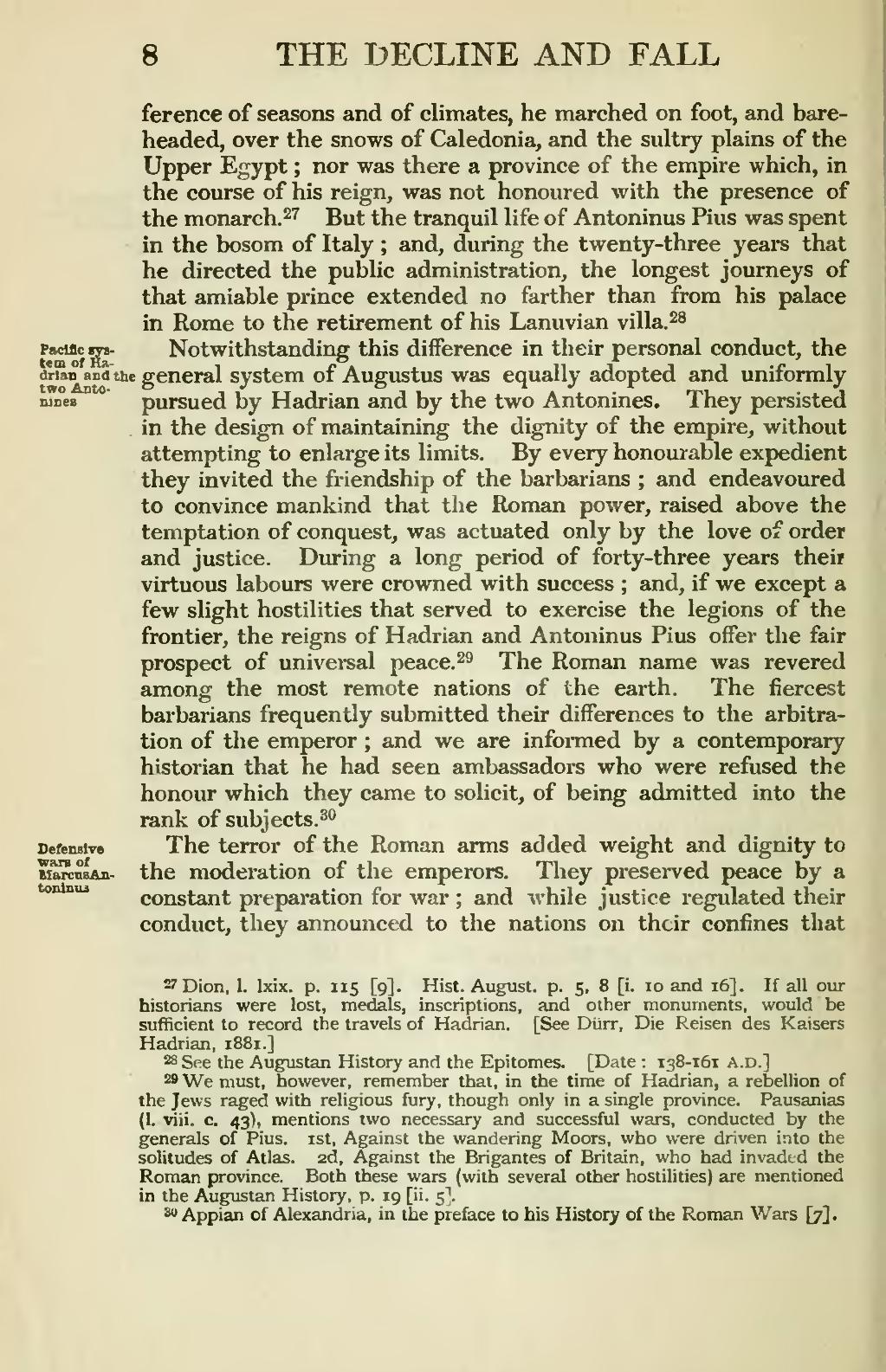ference of seasons and of climates, he marched on foot, and bare-headed, over the snows of Caledonia, and the sultry plains of the Upper Egypt; nor was there a province of the empire, which, in the course of his reign, was not honoured with the presence of the monarch.[1] But the tranquil life of Antoninus Pius was spent in the bosom of Italy; and, during the twenty-three years that he directed the public administration, the longest journies of that amiable prince, were no more than from his palace in Rome, to the retirement of his Lanuvian Villa.[2]
Pacific system of Hadrian and the two Antonines Nowithstanding this difference in their personal conduct, the general system of Augustus was equally adopted and uniformly pursued by Hadrian and the two Antonines. They persisted in the design of maintaining the dignity of the empire, without attempting to enlarge its limits. By every honourable expedient they invited the friendship of the barbarians; and endeavoured to convince mankind, that the Roman power, raised above the temptation of conquest, was actuated only by the love of order and justice. During a long period of forty-three years their virtuous labours were crowned with success; and if we except a few slight hostilities that served to exercise the legions of the frontier, the reigns of Hadrian and Antoninus Pius offer the fair prospect of universal peace.[3] The Roman name was revered among the most remote nations of the earth. The fiercest barbarians frequently submitted their differences to the arbitration of the emperor, and we are informed by a cotemporary historian, that he had seen ambassadors who were refused the honour which they came to solicit, of being admitted into the rank of subjects.[4]
Defensive wars of Marcus Antoninus The terror of the Roman arms added weight and dignity to the moderation of the emperors. They preserved peace by a constant preparation for war; and while justice regulated their conduct, they announced to the nations on their confines, that they
- ↑ Dion, l. lxix. p. 115 [9]. Hist. August. p. 5, 8 [i. 10 and 16]. If all our historians were lost, medals, inscriptions, and other monuments, would be sufficient to record the travels of Hadrian. [See Dürr, Die Reisen des Kaisers Hadrian, 1881.]
- ↑ See the Augustan History and the Epitomes. [Date: 138-161 A.D.]
- ↑ We must, however, remember that, in the time of Hadrian, a rebellion of the Jews raged with religious fury, though only in a single province. Pausanias (l. viii. c. 43), mentions two necessary and successful wars, conducted by the generals of Pius. 1st, Against the wandering Moors, who were driven into the solitudes of Atlas. 2d, Against the Brigantes of Britain, who had invaded the Roman province. Both these wars (with several other hostilities) are mentioned in the Augustan History, p. 19 [ii. 5].
- ↑ Appian of Alexandria, in the preface to his History of the Roman Wars [7].
